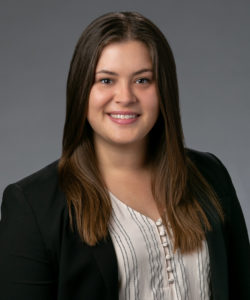The COVID-19 National Emergency has now been effective in the United States for three months. During this time, guidance from federal agencies has been dynamic as the government adapts to the “new normal.”
But even as the global health crisis halts nonessential travel and disrupts visa issuance to many foreign nationals, federal agencies have published additional guidance and announced special consideration for medical professionals. To be sure, these carve-outs are critical, as 17% of medical professionals—and 28% of all physicians—in the United States were born outside of the U.S.
Medical Professionals Present in the United States:
USCIS has implemented a temporary policy change for former J-1 medical graduate physicians who (1) were granted a waiver of the two-year foreign residence requirement; and (2) currently practice in the U.S. as H-1B nonimmigrant physicians based on interest from a government agency.
Typically, in order to maintain their waiver, these former J-1 medical graduate physicians must work full-time (40 hours a week) and administer healthcare to a population in a “shortage area” (as defined by the U.S. Department of Health and Human Services). In a policy memo dated May 11, 2020, USCIS provided the following “flexibilities” for these medical graduates who “are assisting in the fight against COVID-19.”
- Telehealth services are permitted. While immigration laws and regulations are silent as to whether telehealth services are generally permissible under the J-1 waiver program, USCIS has determined that foreign medical graduates may perform telehealth services during the pendency of the National Emergency so long as they continue to serve their intended population (i.e., the population required by the waiver). Employers should note that any “flexibility” offered to foreign nationals must also be offered to similarly-situated U.S. workers.
- Temporary and limited hold on consequences for failing to work full-time. USCIS will not consider physicians to have violated their employment contracts if they are temporarily unable to work full-time due to the COVID-19 pandemic, including reduced hours at healthcare facilities or illness. The policy memo emphasizes that this is a “limited flexibility” that “does not otherwise affect a petitioning employer’s responsibilities under the statutes and regulations relating to H-1B nonimmigrants.”
Medical Professionals Abroad:
On March 20, 2020, the Department of State (“DOS”) temporarily suspended routine visa services at U.S. embassies and consulates in response to the COVID-19 pandemic. More than two months later—and even as many states within the U.S. have begun to reopen their economies—American embassy and consulate closures persist.
DOS has not announced an across-the-board date for when it will resume routine nonimmigrant and immigrant visa appointments, but reports indicate that each embassy or consulate will reopen on its own timeline after considering circumstances specific to each country. Some consulates have begun to reschedule visa appointments, but most remain closed.
As many foreign nationals continue to hold their breath waiting for routine visa services to resume, the federal government has given special consideration to medical professionals regarding consular appointments. DOS has announced that despite the suspension of routine visa processing at many consulates and embassies, medical professionals seeking to enter the U.S.—especially those working to treat or mitigate the effects of COVID-19—should request an emergency appointment to secure their visa.
The process of requesting an expedited or emergency appointment at consular posts varies by country, but it will generally proceed as follows:
- The applicant will complete an online form (e.g., nonimmigrants will complete DS-160) and pay the application fee.
- The applicant will schedule an appointment online and request an expedited or emergency appointment, outlining the reason the applicant qualifies for accelerated processing. Some consulates may take requests for emergency appointments via phone or email.
- If the request for an expedited or emergency appointment is approved, the applicant will be notified by the embassy or consulate.
- When the applicant attends the visa interview, he or she may be required to submit documentary proof that he or she qualifies for an expedited or emergency appointment. In some cases, the visa interview may be waived.
Medical professionals with an approved nonimmigrant or immigrant visa petition with a current priority date, especially those “working to treat or mitigate the effects of COVID-19,” should follow the guidance provided on the website of the specific embassy or consulate where they plan to apply and request an emergency visa appointment.
Medical Professionals at Ports of Entry:
Despite the extension of restrictions on cross-border non-essential travel through June 22, 2020 at 11:59 p.m. EDT, U.S. Customs and Border Protection has continued to prioritize the admission of medical professionals with valid visas or visa-exempt medical professionals (e.g., Canadian nationals).[1] As stated in a May 22, 2020 Federal Register notice regarding the extension of restrictions on non-essential cross-border travel, the restrictions are not meant to interrupt legitimate trade between the affected nations or disrupt critical supply chains that ensure delivery of food, fuel, medicine, and other critical materials.
About the Author:
Alexandra Crandall is an associate attorney at Dickinson Wright in Phoenix. She focuses her practice on business immigration and commercial litigation. Prior to joining the firm, Ms. Crandall served as a Judicial Law Clerk to the Honorable Jennifer B. Campbell at Division One of the Arizona Court of Appeals.

[1] U.S.-Canada Border Federal Register Notice (Initial 85 Fed. Reg. 16548) | 30-Day Extension Notice 1 at 85 Fed. Reg. 22352 (April 22, 2020) | 30-Day Extension Notice 2 at 85 Fed. Reg. 31059 (May 22, 2020); and U.S.-Mexico Border Fed. Reg. Notice (Initial 85 Fed. Reg, 16547) | 30-Day Extension Notice 1 at 85 Fed. Reg. 22353 (April 22, 2020) | 30-Day Extension Notice 2 at 5 Fed. Reg. 31057 (May 22, 2020).
